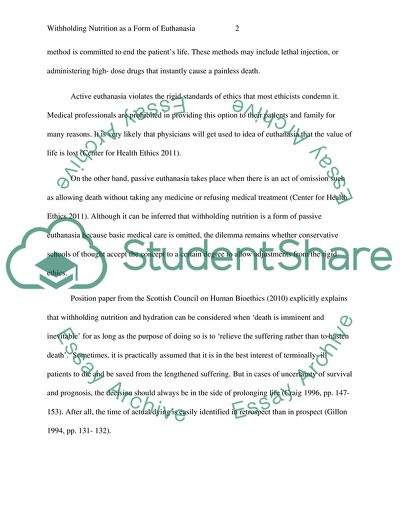Cite this document
(Is withholding nutrition in end of life care a form of euthanasia Literature review, n.d.)
Is withholding nutrition in end of life care a form of euthanasia Literature review. https://studentshare.org/medical-science/1772676-withholding-nutrition-as-a-form-of-euthanasia
Is withholding nutrition in end of life care a form of euthanasia Literature review. https://studentshare.org/medical-science/1772676-withholding-nutrition-as-a-form-of-euthanasia
(Is Withholding Nutrition in End of Life Care a Form of Euthanasia Literature Review)
Is Withholding Nutrition in End of Life Care a Form of Euthanasia Literature Review. https://studentshare.org/medical-science/1772676-withholding-nutrition-as-a-form-of-euthanasia.
Is Withholding Nutrition in End of Life Care a Form of Euthanasia Literature Review. https://studentshare.org/medical-science/1772676-withholding-nutrition-as-a-form-of-euthanasia.
“Is Withholding Nutrition in End of Life Care a Form of Euthanasia Literature Review”. https://studentshare.org/medical-science/1772676-withholding-nutrition-as-a-form-of-euthanasia.


